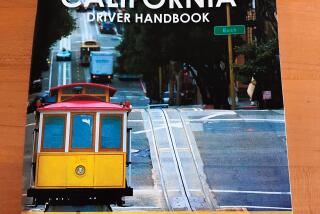Warning signs: Is there a family member who shouldn’t be driving?
Everyone ages at a different rate: Some drivers are shaky in their 60s, others are still alert in their 90s. But vision loss, hearing problems, slower reaction times, use of medications and illness can affect driving ability. Here are 10 questions that may identify problems, some of which can be overcome with changes in driving behavior or physical fitness.
1. Are there dents or scrapes on the car, garage door, fence or mailbox?
2. Does the driver feel uncomfortable, nervous or fearful while on the road?
3. Is the driver unable to stay inside the lane, or is he hitting curbs, missing turns or putting pedestrians at risk?
4. Does the driver get lost in familiar areas?
5. Is the driver having a hard time paying attention to signals, road signs and pavement markings?
6. Has he or she had frequent close calls, been involved in an accident, or received tickets or warnings by law enforcement officials?
7. Is the driver’s response time slow when an unexpected situation occurs?
8. Does the driver get angry or irritated while on the road, or are other people honking?
9. Does the driver daydream or become easily distracted?
10. Does the driver have trouble merging with traffic or turning around to check over his shoulder while backing up or changing lanes?
-- Rosemary McClure
More to Read
Sign up for Essential California
The most important California stories and recommendations in your inbox every morning.
You may occasionally receive promotional content from the Los Angeles Times.










